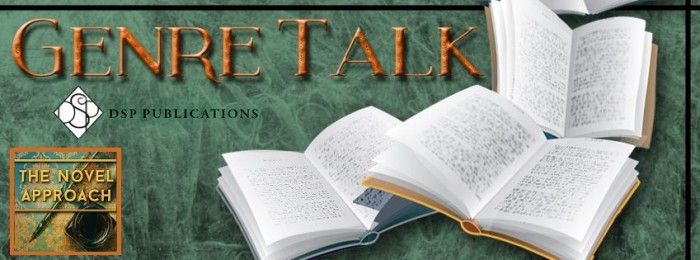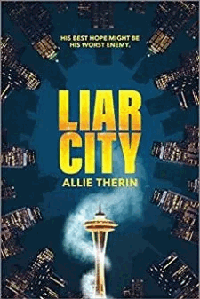
Through My Lens: A quarterly blog for Genre Talk
Lloyd A. Meeker
~ Through My Lens is just that – a glimpse of my thoughts, questions and opinions about writing craft issues, conditioned by my idiosyncratic worldview, my opinions, my perspective, my sensibilities. You’re in no way obliged to agree with me. In fact, I’m very interested to hear other perspectives. I welcome any comments that stimulate civil discourse. ~
![]()
Size Matters – How Long Should a Story Be?
 I recently submitted a 200-page manuscript to an agent for consideration. He wrote back, saying he liked it but it wasn’t ready for market – more development was needed for the story elements I’d included. He wanted to see it again once I’d revised. He said he wouldn’t even blink if I resubmitted a manuscript 100 pages longer.
I recently submitted a 200-page manuscript to an agent for consideration. He wrote back, saying he liked it but it wasn’t ready for market – more development was needed for the story elements I’d included. He wanted to see it again once I’d revised. He said he wouldn’t even blink if I resubmitted a manuscript 100 pages longer.
I was stunned at first, but when I could think again, I started reflecting on my story’s length. I realized I had allowed myself to slip unconsciously into a 200-page length convention that seems familiar in small press gay fiction and had skimmed over crucial story elements to make it “fit” that length. I confess to enduring a day or two of acute embarrassment before agreeing with him that my story should be longer. For some stories, 200 pages is the perfect length. Mine wasn’t one of them.
So how long should a story be? In more mundane terms, how long should a piece of string be? Answer: long enough to tie up what you’re working on, short enough not to waste too much string.
Aristotle provided the first working analysis of story structure that I’m aware of. He said a story had to have a beginning, a middle, and an end. As far as I’m concerned, this still provides the basis for not only understanding story, but also how long the story should be.
To paraphrase Aristotle, I’m going to say that a story should have a setup, a mystery to be revealed (not necessarily a whodunit kind of mystery), and an emotional payoff. The beginning is always the setup, and if the story is any good the ending delivers the emotional payoff. The key lies in the middle: the mystery.
Although there’s an argument (and when is there NOT an argument, regardless of writing topic?) that he didn’t write it, Ernest Hemingway is said to have won a bet writing a 6-word story:
For Sale: Baby shoes. Never used.
In this six word story there is a beginning, a middle and an end. Two words each, the way I read it. But what actually happened? Where is the revelation of the mystery? All the reader is given is that the baby shoes are for sale, and they were never worn. Because…
Readers have to supply their own middle. The couple wanted a child but the baby died. The mother had a miscarriage. A manipulative mother-in-law gave the couple the baby shoes when she knew very well that the couple never wanted to have children, in fact couldn’t have children because of a medical condition. The mother-in-law was harassing them, and the couple decided to sell the shoes in the village classifieds where she would be sure to see the listing, as a way of telling her to go to hell.
When the author undertakes to reveal the middle mystery, he or she can’t afford to leave it so ambiguous as this six-word story does. And therein lies the key to story length. I’m suggesting it’s the nature of the middle – the mystery – that determines a story’s right length.
In Ken Follett’s Pillars of the Earth, the mystery to be revealed is how the cathedral is built and what happens along the way. That mystery requires over a thousand pages to reveal. A short story of twenty pages is not going to tackle the mystery of how a cathedral is built, at least not in the way Follett did.
A novel is not a short story just with more events and words. Specifically, the middle of a short story is not at all the same as a middle of a novel. The three-act structure often referred to in writing circles is not the same as the one-act structure, yet they both have beginnings, middles and ends. For one thing, the mechanics are different. A short story is supposed to show a character in a closely focused set of circumstances, and a novel is supposed to show greater character growth. Any length can be the right length – but what kind of mystery does the story reveal? What length of story does the mystery’s revelation require?
A subtle problem arises, I think, when an author gets the length of a story wrong, as I did with my current project. Or maybe when a short story is stretched out to novel length without enough “middle/mystery” to warrant the increased length — lots of events, maybe, but not enough character growth. The story doesn’t feel right to an experienced reader, even though it might be engagingly written. (Of course if it’s a literary novel, then all bets are off, but that’s outside the scope of this post.)
Have you ever read a review of one of our books where the reviewer said, “I felt like the [story, or a story element] could have used more development,” or “The ending felt rushed,” or “The relationship between the MCs was given enough attention, but the rest of the story was never filled out,” or words to that effect?
This may not be a reviewer just wanting more story, as in, “I didn’t want the story to ever end, because oh, the feels!” or “I wanted the story to end my way.” Instead, it may have been the reviewer sensing the story had been cut too short.
On the other hand, I’m sure you’ve read a novel where the middle becomes repetitive, a hamster wheel – that is, the conflict goes round and round without much (or even any!) real growth in the protagonist. I have. More often than not I think it was simply because a short story middle had been stretched into novel length. The nature of the middle — the mystery to be revealed — wasn’t rich or deep enough to support the story’s longer length.
When a short story is made too long or a long story cut too short, it’s my experience that the ending — the emotional payoff — doesn’t satisfy as it would if the author had made the story the right length. I knew the ending in my manuscript didn’t feel right when I first sent it off to the agent. I just didn’t see why – it was a perfectly satisfactory, rather conventional ending. It just didn’t finish my story in a way that satisfied me.
So protestations to the contrary, size really does matter. A story should be exactly as long as a piece of string — long enough to tie the story up, short enough not to waste string. That demands thoughtful decisions from the author, but it’s worth the effort. When an author hits that sweet spot in story length, we readers know it. The whole work shivers with magic right through to the end.
![]()
About the Author
 I’m a mystic, writer, healer, lover, cancer survivor, father, friend. I write (mostly) gay fiction featuring all those paths and more.
I’m a mystic, writer, healer, lover, cancer survivor, father, friend. I write (mostly) gay fiction featuring all those paths and more.
Having led what can only be described as a checkered life, I can honestly say I’m grateful for all of it. I’ve been a minister, an office worker, a janitor, a drinker, and a software developer on my way to finishing my first novel in 2004.
But basically I’m just a weather-worn psychic empath still learning how to live in the world just the way it is. The thing is, I experience the world as so much more than is generally accepted. That’s the challenge. Writing stories is the best way I’ve found to examine and share the questions, the wonders I engage daily.
My husband and I have been together since 2002, married since 2007. Between us we have four children and five grandchildren. We’re based in south Florida, and work hard to keep up with the astonishing life we’ve created for ourselves.
Where to Find Lloyd: Website![]()
Thanks for joining us, everyone! If you’d like to keep tabs on Genre Talk and never miss a post, hop on over and like our Facebook page, join our Facebook group, and check out our web page.


Excellent article! Thank you for sharing this with us.
LikeLike
An excellent post that articulates exactly how I feel about all story lengths, many thanks for sharing :)
LikeLike